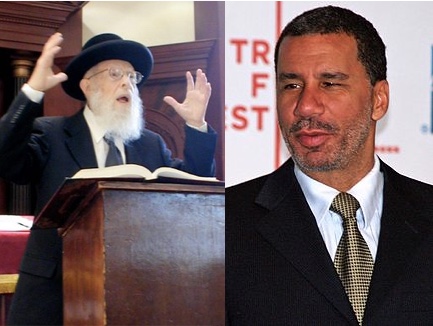On an ordinary day in 2009, the telephone rang in the office of Yeshivas Chofetz Chaim in Queens, New York. The caller was an official in the state government in Albany who asked to speak with the rosh yeshiva, Rav Henoch Leibowitz.
Rabbi Chaim Schwartz, the executive director of the yeshiva, took the call and explained apologetically that Rav Henoch had passed away a year earlier. “Is there something I can do for you?” he asked.
The caller was chagrined to discover that the rosh yeshiva was no longer alive. “I just came from a staff meeting in the government,” he told Rabbi Schwartz. “A bill was proposed that wasn’t completely ethical, and there was some debate as to whether it should be passed. Governor David Paterson then spoke up and announced that the bill was unacceptable because it does not pass the ‘Rabbi Leibowitz smell test,’ and he voted it down. Of course, none of us had ever heard of the ‘Rabbi Leibowitz smell test,’ and we asked him to explain what he meant.”
Rabbi Schwartz was enthralled as the caller shared a remarkable story that took place twenty years earlier. After ending the phone call, he contacted the previous executive director of the yeshiva, Rabbi Avrohom Ginsburg, to hear the full details of the incident.
In the 1980s, the New York State government offered a grant for the installation of high-efficiency light fixtures in schools. Yeshivas Chofetz Chaim was eligible for the grant, and Rabbi Avrohom Ginsburg, applied for the funding after receiving professional estimates that put the cost at around $75,000. The grant was approved, and the funds were transferred to the yeshiva so that the work could be performed. However, Rabbi Ginsburg was resourceful enough to find a professional who was willing to do the job for a much lower price. The final bill came out to only $60,000, and Rabbi Ginsburg was pleased. It seemed that the yeshiva would be able to pocket an unexpected windfall of $15,000, which was sorely needed due to its precarious financial position at the time.
When he apprised the rosh yeshiva, Rav Henoch Leibowitz, of the situation, Rabbi Ginsburg was surprised by Rav Henoch’s reaction. “We cannot keep this money under any circumstances,” Rav Henoch insisted. “It must be returned to the government.”
“But I don’t feel that I can do that in good conscience,” Rabbi Ginsburg objected. “The yeshiva is struggling; how can I give up such a large sum of money? Surely it must be legitimate for us to keep it, since the government already made the allocation. It was only because of my own careful research that we were able to get the job done for a lower price.”
Rav Henoch was adamant. “The money was given to us only for the light fixtures; it was not meant for anything else,” he said. “I will make the call myself to return it, if that is what is necessary.”
Rav Henoch Leibowitz placed a call to the government office, where a newly hired young clerk answered the phone. The rosh yeshiva explained the situation and asked for instructions on returning the surplus funding to the state. “I am not sure how to do that,” the clerk admitted. “I will have to call you back.”
One week later, the clerk called the rosh yeshiva and informed him that he had been unable to come up with the information. “No one can remember something like this ever happening before,” he informed Rav Henoch. “No one has ever asked to return part of a grant, and there is no protocol in place for taking the money back. You can simply keep the funds.”
The rosh yeshiva was not about to give up so easily. “I don’t feel comfortable keeping this money,” he said. “Please find a way for me to return it.”
The clerk promised to call him back, but when he spoke to the rosh yeshiva again, he had nothing further to report. “I checked again,” he said, “and there is no way for us to take this money back. Please, just keep it for your school.”
But Rav Henoch Leibowitz would not be dissuaded. “I am going to write a check to your office and send it back to you,” he informed the clerk. “I cannot keep money that isn’t rightfully mine.”
That clerk was a young man named David Paterson. Years later, as the governor of New York, Paterson was still awed by his dealings with Rav Henoch Leibowitz. “He is the most honest person in the state of New York,” the governor told the puzzled officials at the staff meeting that day in 2009. “In my view, he is the gold standard of personal integrity. I measure everything I do with the question of whether it would pass his rigorous standards.”
Rav Henoch Leibowitz demonstrated with the impression he made, that if we reflect Hashem’s attributes, our impact on the world can be incalculable.
5TC thanks Rabbi Shraga Freedman, Director of Living Kiddush Hashem Foundation, for this incredible story. R’ Friedman is the author of Living Kiddush Hashem and A Life Worth Living (ArtScroll Mesorah) and Sefer Mekadshei Shemecha. Living Kiddush Hashem was founded with the goal of imbuing every Jew with a powerful sense of mission — the mission to be mekadeish Sheim Shamayim in his or her own unique way. Visit LivingKiddushHashem.org for more resources.



















Beautiful story!! Kiddush Hashem!!
Wonderful message! Yehi zichro Baruch!
If only our politicians would have this same sense of ethics.
Powerful